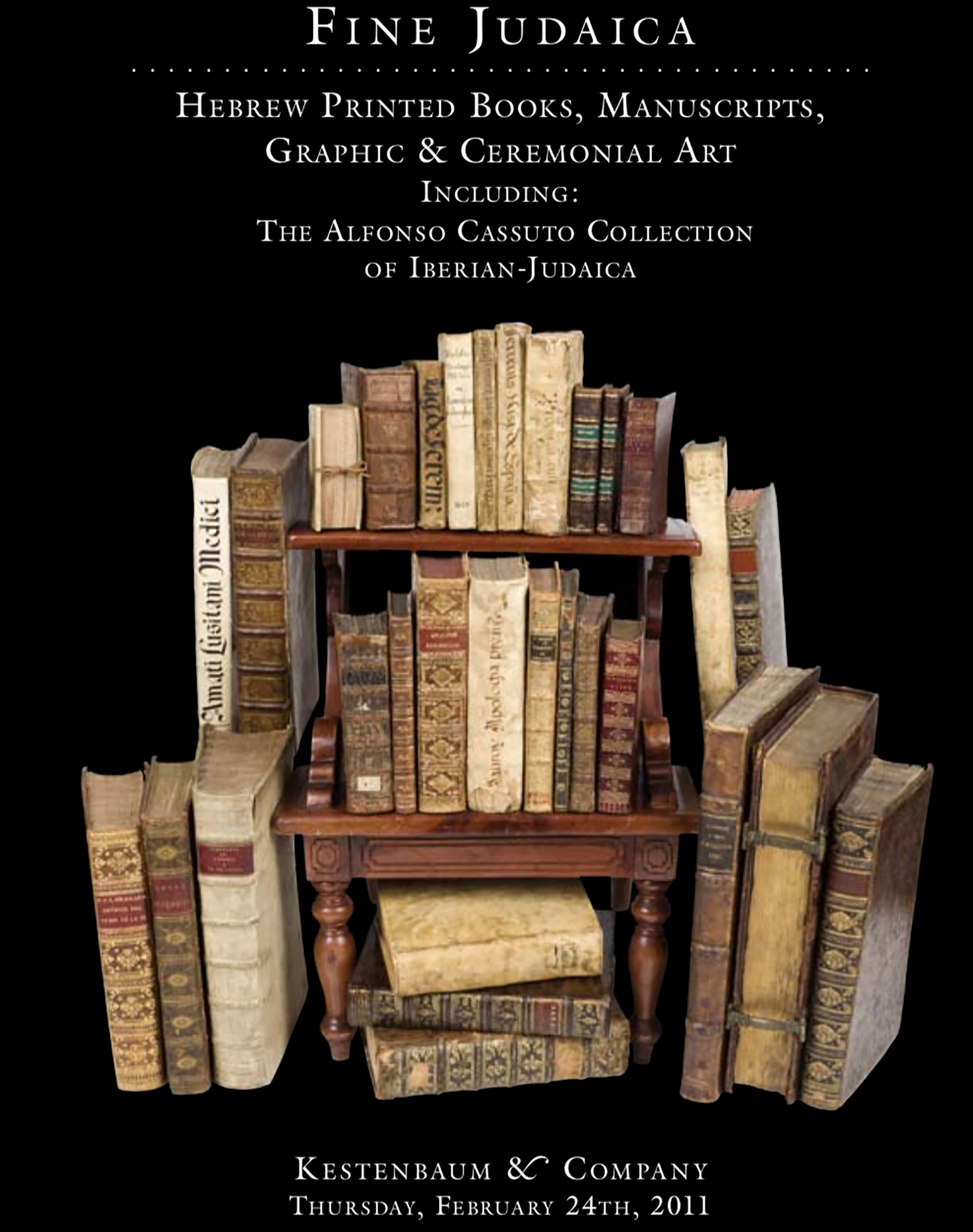(HASKALAH)

AUCTION 50 |
Thursday, February 24th,
2011 at 1:00
Fine Judaica: Hebrew Printed Books, Manuscripts, Graphic & Ceremonial Art Including: The Alfonso Cassuto Collection of Iberian Art
Lot 137
(HASKALAH)
(Königsberg) & Berlin: Orientalischen Buchdruckerey 1787-88
Est: $500 - $700
PRICE REALIZED $800
Important Collection of Early Haskalah Literature
HaMe'asef was the journal of the Berlin Haskalah movement that appeared from 1784 until 1812. The present volume includes the literary debut of Isaac Satanow's Mishlei Asaf (pp. 236-239); Isaac Euchel's biography of Moses Mendelssohn (which included a Hebrew translation of Mendelssohn's Jewish philosophic work Jerusalem) (pp.113-144; 177-208; 337-368); and Solomon Maimon's anonymous work, Giv'ath ha-Moreh, a commentary to Maimonides' Guide for the Perplexed (pp. 241-263). Additionally, the section "Toledoth HaZeman" served to keep the readership abreast of contemporary historical developments directly affecting the Jewish community. One notes with interest the positive reaction to Austrian Emperor Joseph II's military conscription law (pp. 331-334) and Herz Homberg's defense of Joseph II's government educational system (pp.227-236). See Sh. Feiner, The Jewish Enlightenment (2002) pp. 265-72; and A. Altmann, Moses Mendelssohn (1973) p. 758.
The second work consists of a booklet sent to the subscribers of HaMe'asef, worded as an open letter to all German Jews. Author David Friedländer, who had funded Mendelsohn's Bi'ur, a translation of the Pentateuch into Judeo-German, was infuriated by R. Elazar Fleckeles' denunciation of the Bi'ur project in his book Olat Tzibbur (Prague, 1787). Here he went on the attack holding Fleckeles and his mentor R. Ezekiel Landau (Chief Rabbi of Prague, author Responsa Noda bi-Yehudah) up to the worst sort of ridicule on account of their supposedly ungrammatical Hebrew. See Feiner, pp. 272-3; and S. Flatto, The Kabbalistic Culture of Eighteenth-Century Prague: Ezekiel Landau and His Contemporaries (2010) p.79, n.97.
The third work by physician and philosopher Marcus Herz, argues against the traditional Jewish practice of early burial, on the grounds that certainty of death cannot be established for three days. See Feiner, pp. 332, 424
